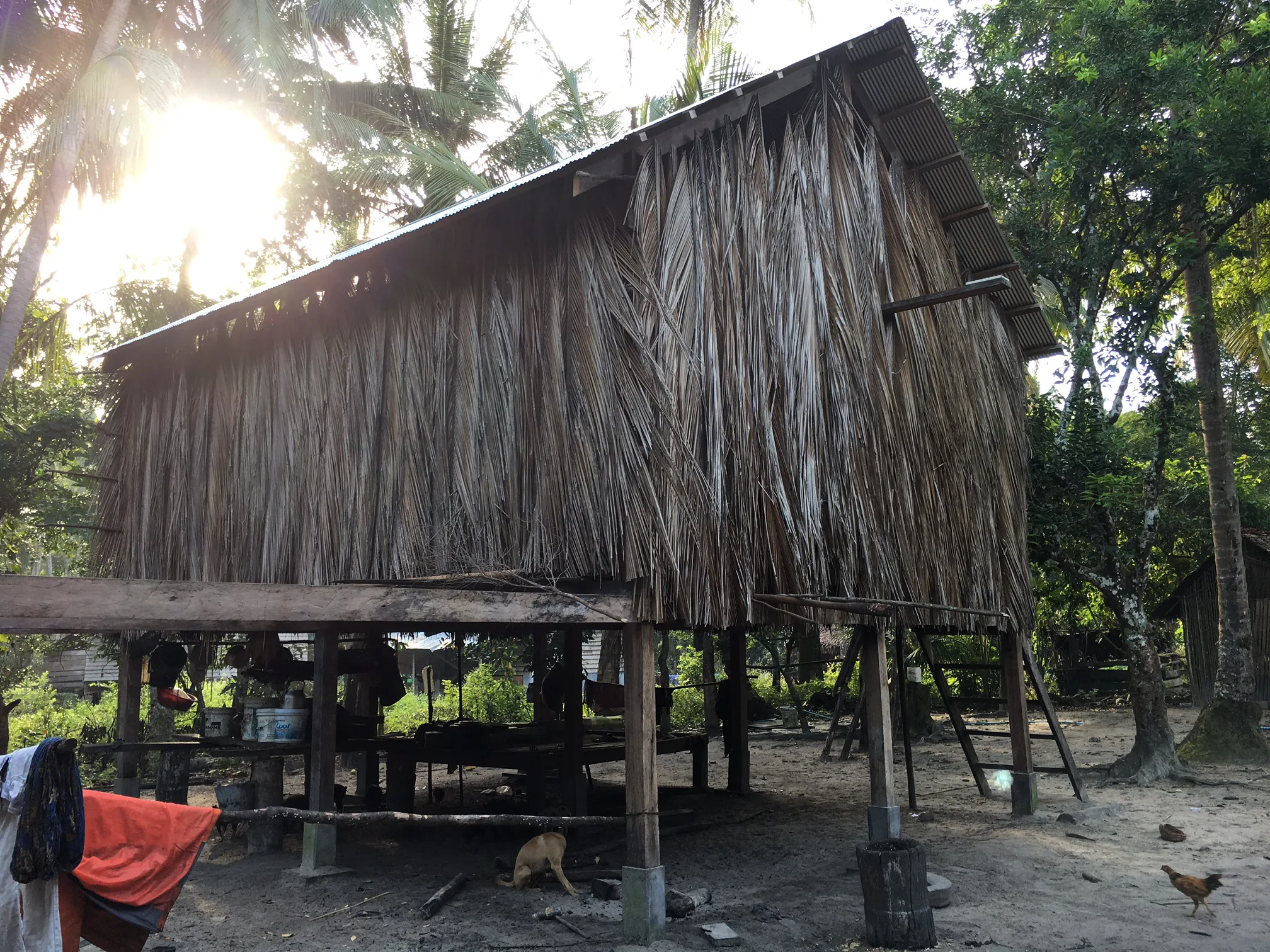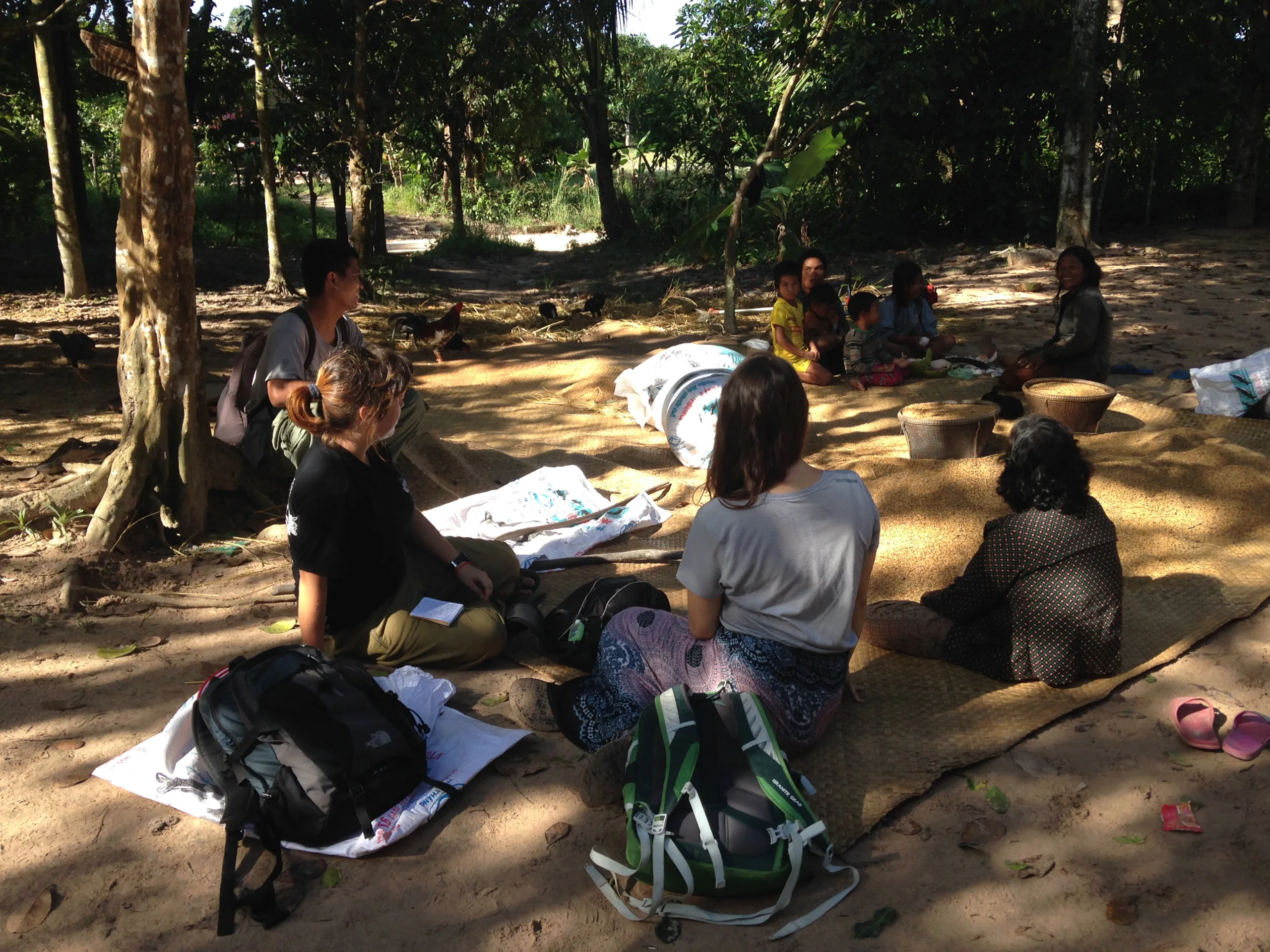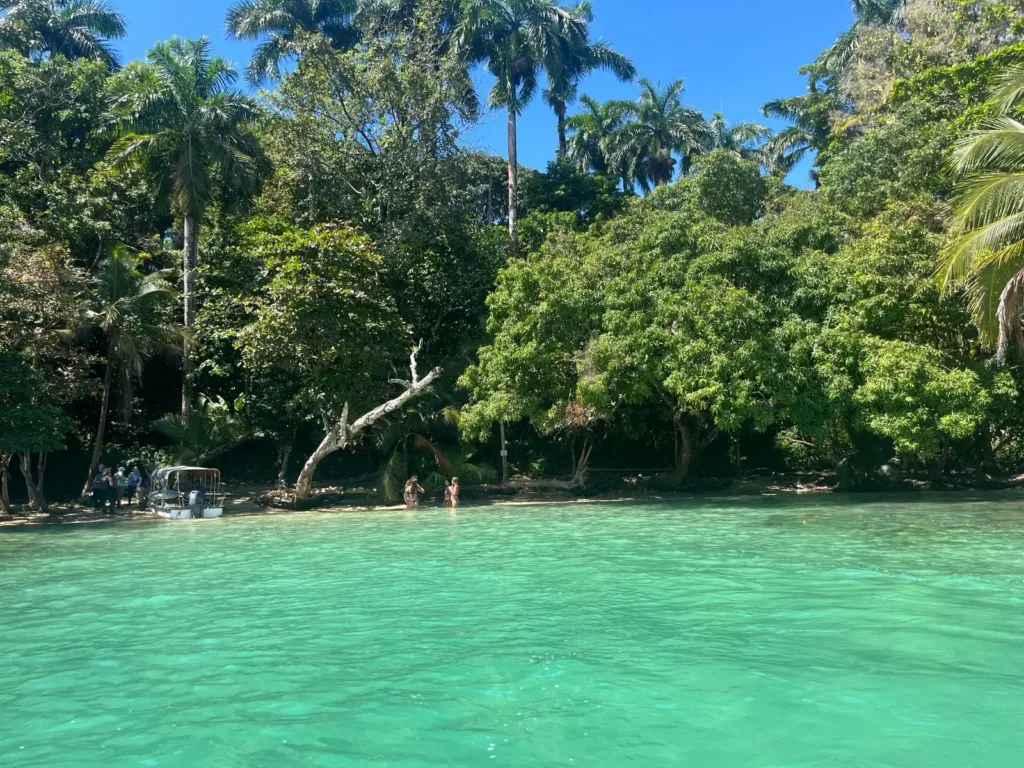Final Impressions of Cambodia
At the beginning of the fall semester, we asked student Tally Condon about her first impressions of Cambodia. Now, after the semester wrapped up, she shared her thoughts with us again.
What did you like most about the SFS experience?
Overall, I am so grateful that this program offered me a curriculum and professors with specialties I would otherwise have little exposure to. Having the opportunity to visit different conservation projects and other sites in Cambodia and Vietnam as an informed, ethically conscientious student has been really unparalleled and will certainly be something I’ll carry with me through my future academic life.
You’ve been in the country for a full semester – tell us your impressions of it now.
It’s strange to compare how things I wasn’t used to in the beginning of the program have now become normal to me, like ripe mangoes, people fishing in the ponds outside our Center, tuk tuk rides into town, or being always slightly hot and sweaty. I still adore the taste of a perfectly ripe mango and sometimes have to turn the fan settings higher to escape the heat, but many everyday things have become normalized and expected instead of being new and surprising.
Also, since my Directed Research project focused on recording oral histories in two villages in Phnom Kulen National Park, my impressions of Cambodia now are very linked to the meaningful conversations I had with my respondents about their own lived experiences. It’s interesting to compare my impressions now of walking around Siem Reap town to my initial experiences of Siem Reap in the first week on the program. After learning so much more about Cambodian history, I now notice how resilience and determination are incorporated into so many people’s everyday lives in spite of a very tumultuous historical legacy.
What is life at the field station really like? What are the best and the most challenging parts of living at a remote field station?
The SFS Center in Cambodia is located in Siem Reap town, so it isn’t very remote. I think my classmates and I have taken great advantages of the opportunities in Siem Reap to explore Cambodian cuisine, market life, and many more things the town has to offer. The most challenging part of our Center’s location in relation to the rest of the town might be the continually bumpy roads and the one notorious, big trench in one road we navigate, but it has become an endearing, funny feature in our regular life.
What ended up being your biggest challenge this semester both academically and culturally?
My biggest challenge academically has been staying on top of all my work and having well-organized time management. We had classes six days per week, multiple hours at a time, leaving little space in the evenings to finish all assignments and readings for the next day while also taking care of our individual lives. This type of schedule forced me and my classmates to manage our time pretty methodically. It was good practice and a little exhausting sometimes, especially when occasional health issues came up for many of us, but I think we all found our own ways of being good students while also taking good care of ourselves.
Culturally, I wish I could have had more time to practice the Khmer language! Our Khmer course taught us really helpful words and phrases to use in navigating the market or having personal conversations, but I wish I could stay longer to learn more. Every time I was able to guide a tuk tuk driver back to our Center or buy fruit from a vendor solely in Khmer, I felt so accomplished, but sometimes I tried to have more complex conversations than I knew I had the vocabulary for. I’d love to continue improving my language skills.
What is the best memory you have from the semester? Give some highlights.
Earlier in the semester, my favorite memory was when two friends and I woke up early in Stung Treng, a little town in eastern Cambodia, and went to explore the morning market. We ended up buying lots of pastries, rice cakes, and coconuts for breakfast and got to see so many different items and foods for sale. After that, we hopped on a bus and had our first boat trip on the Mekong River to visit a village and community fishery.
Later in the semester, my favorite moment was on the first day of my Directed Research project in Phnom Kulen National Park. Six people, including my research partner and I, were the first of our group to drive on the bumpy road to Khla Kmum village which we weren’t positive would even be passable. It soon became an attempt to fit two big cars, both with four-wheel drive, through the cashew trees of farmers’ orchards planted around and on the road. We had to consolidate into one car and drove on the very bouncy road with some unexpected stretches of smooth pavement apparently donated by the Finnish government. When we finally arrived, I was really excited that we had made it to the village at last and could start conducting our interviews.
Give three adjectives that best describe how you are feeling right now.
Appreciate- for such an insightful experience
Excited- to bring this experience home to my family, friends, and future academics
Pretty sad- that I’m saying goodbye to the program, the people, and the places that I’ve come to love a lot





→ Conservation, Ethics, and Environmental Change in Cambodia
Related Posts


